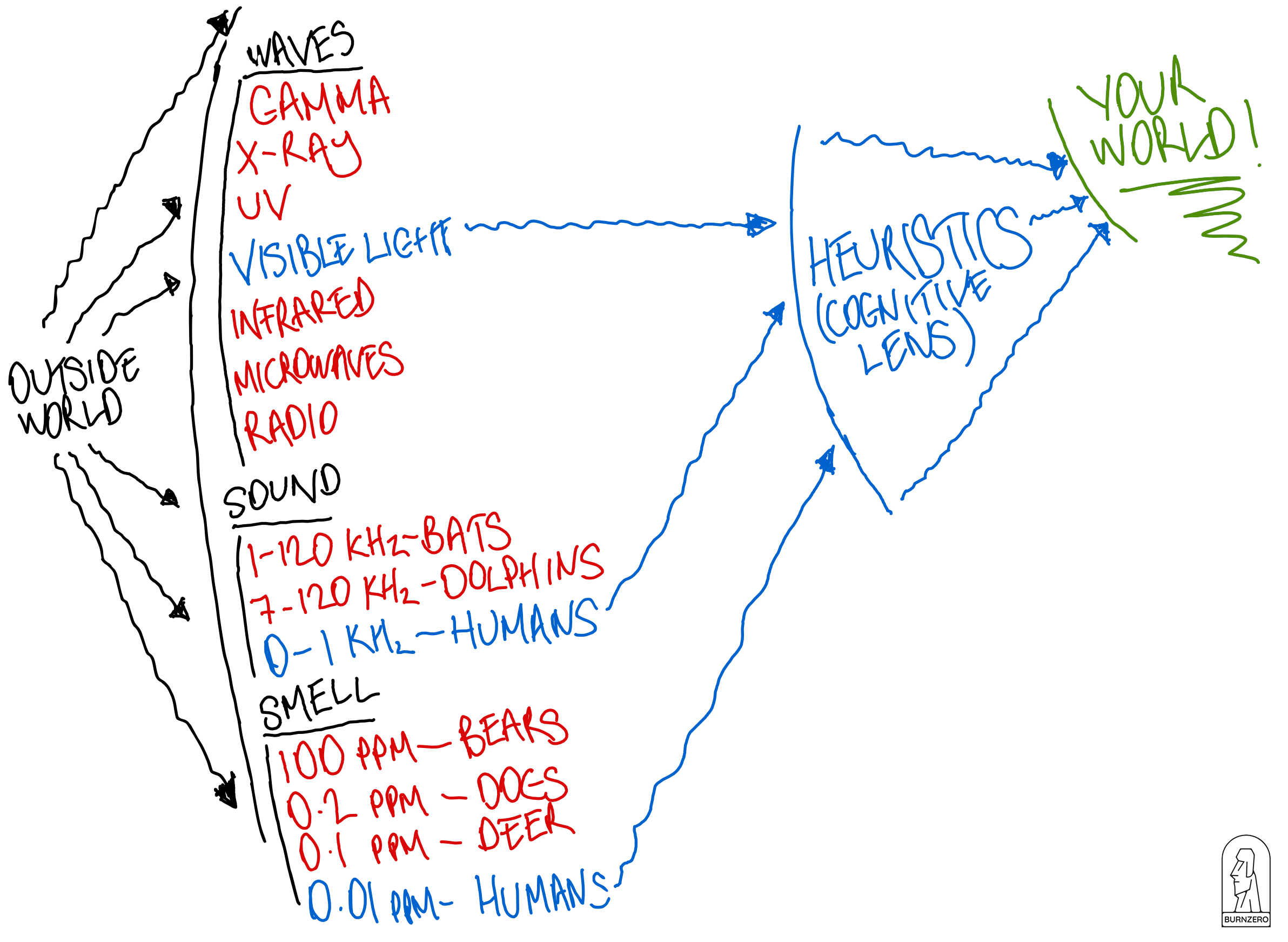Cognitive Lens: Difference between revisions
mNo edit summary |
mNo edit summary |
||
| (One intermediate revision by the same user not shown) | |||
| Line 1: | Line 1: | ||
<div class="res-img">[[File:Cognitive Lens.png|alt=Cognitive Dissonance|center|Cognitive dissonance quote]]</div> | <div class="res-img">[[File:Cognitive Lens.png|alt=Cognitive Dissonance|center|Cognitive dissonance quote]]</div> | ||
<div class="res-img"> | <div class="res-img"></div> | ||
'''The cognitive lens is the medium, which filters, and simultaneously translates information from the outside world into information that the human brain can interpret'''. The cognitive lens differs from the human lens of the eye as it incorporates, not only the sense of sight but all the other human senses including sound, touch and smell... | '''The cognitive lens is the medium, which filters, and simultaneously translates information from the outside world into information that the human brain can interpret'''. The cognitive lens differs from the human lens of the eye as it incorporates, not only the sense of sight but all the other human senses including sound, touch and smell. The image above depicts that the outside world is a chaos of information transmitted mainly by waves. Human brains are attached to sense organs which can only detect a small percentage of this information. When converted from photons or sound waves via the retina or cochlea into neural signals to the brain, the resulting deluge of information is overwhelming. The brain has evolved a series of hardwired [[heuristics]] and learnt a series of [[Neuroplasticity|plastic]] heuristics to separate out what is useful to its survival. | ||
Latest revision as of 02:38, 23 June 2023
The cognitive lens is the medium, which filters, and simultaneously translates information from the outside world into information that the human brain can interpret. The cognitive lens differs from the human lens of the eye as it incorporates, not only the sense of sight but all the other human senses including sound, touch and smell. The image above depicts that the outside world is a chaos of information transmitted mainly by waves. Human brains are attached to sense organs which can only detect a small percentage of this information. When converted from photons or sound waves via the retina or cochlea into neural signals to the brain, the resulting deluge of information is overwhelming. The brain has evolved a series of hardwired heuristics and learnt a series of plastic heuristics to separate out what is useful to its survival.
